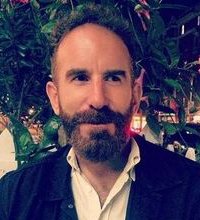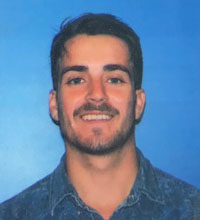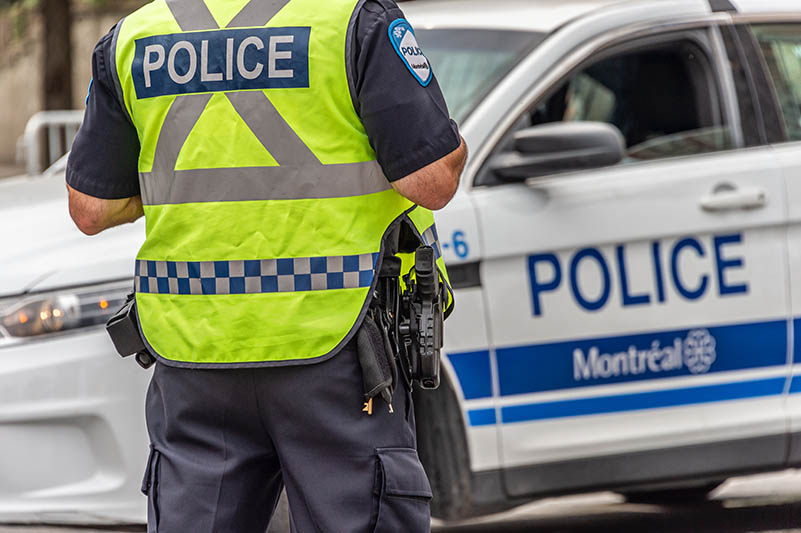The perspectives of front-line workers couldn’t be clearer: far from being a form of support, mixed squads have further harmed unhoused people.
Since 2009, Montréal has seen a proliferation of what are known as ‘mixed squads’, which generally involve a police officer working alongside a social worker or health worker to respond to situations in public spaces.
Some experts and police say these squads can help leave repression behind to provide support to marginalized people.
But what happens when we pay attention to the perspectives of those who work on the front lines with unhoused people? Listening to these perspectives and bringing them into the public debate is the aim of a new report on mixed squads in Montréal. We contributed to the research.
The perspectives of front-line workers couldn’t be clearer: far from being a form of support, mixed squads have further harmed unhoused people.
The squads add a layer of surveillance and harassment that leads unhoused people to leave the spaces they know best and distance themselves from their support network in order to avoid police. Meanwhile, they continue to be harassed by conventional police officers.
Needs of the homeless are ignored
None of this is surprising. While mixed squads differ from conventional policing in terms of their personnel, their objective remains the same: to intervene in the lives of unhoused people in the interests of businesses, wealthier residents or other city residents who wish to see them displaced.
In short, the interests and needs of unhoused people are secondary, if not simply ignored.
The report found the squads hinder the work of front-line workers, complicating their interventions and relationship-building and making it harder to maintain their independence from law enforcement.
The impact of mixed squads on community work is equally significant and negative. The report found the squads hinder the work of front-line workers, complicating their interventions and relationship-building and making it harder to maintain their independence from law enforcement.
Police officers, meanwhile, are occupying an ever-bigger space in the ecosystem of the services unhoused people need.
The squads also have an increasing share of public funds. As a result, they both represent and accelerate a shift in Montréal’s management of homelessness away from the community groups that support unhoused people and work to resolve the problems they experience over the long term.
Instead, the squads ignore long-term solutions and ultimately move people from one space to another on a continual basis.
Faced with these problems, the report calls for a new approach to homelessness, including abolishing mixed squads and reallocating their funding to two types of interventions.
1: A new all-civilian squad
The squad would be co-created by all concerned groups to respond to non-criminal 911 calls. This type of squad is increasingly common in North America, and Fady Dagher, Director of the Montréal Police force, is in favour of creating one.
We should emphasize that an existing squad, the Équipe mobile de médiation et d’intervention sociale (ÉMMIS), is not the civilian squad we are calling for. Although ÉMMIS teams don’t involve police, the initiative was created to respond to complaints about unhoused people, with funding of $50 million over five years.
The ÉMMIS approach turned marginalized people into objects of intervention, rather than the equivalent of housed city residents.
The ÉMMIS squad also patrols the city, talking to unhoused people in public spaces to establish “a relationship of trust.” This role makes it difficult for the unhoused to distinguish between those who are really working in their interests and needs and those who are working to improve the sense of security of others.
This leads to further disengagement from, and loss of confidence in, the institutions of society.
2: More funding to community groups
Our report’s main objective is to challenge a public discourse dominated by the police and various city officials by prioritizing the perspectives of front-line workers who are well placed to understand what unhoused people really need.
In addition to a new civilian team, we are calling for community organizations to be refinanced. The primary focus must be supporting people experiencing homelessness, and working towards long-term solutions to the problems they face.
That’s why the report calls for most of the funds currently devoted to mixed squads to be transferred to community organizations that share this mission.
Our report doesn’t claim to have all the answers. Its main objective is to challenge a public discourse dominated by the police and various city officials by prioritizing the perspectives of front-line workers who are well placed to understand what unhoused people really need.
We encourage further debate on this issue, which is why we are asking the city – as Montréal’s primary network of homeless-serving organizations, Réseau d’aide aux personnes seules et itinérantes (RAPSIM), did back in 2007 – to hold public consultations soon to discuss the creation of an all-civilian response to non-criminal 911 calls.
This article first appeared on The Conversation, and is republished under a Creative Commons Licence; you can read the original here.
About the Authors
 Ted Rutland is Associate Professor in the Department of Geography, Planning, and Environment at Concordia University. He is a human geographer and interdisciplinary scholar focused on municipal politics, urban planning, and urban security in Canada, approaching this work with an interest in social and racial justice. He often draws on work in Black studies and geographies to document how ideas about ‘race’ shape urban policies and practices, and how social and racial justice movements imagine and seek to create different urban worlds.
Ted Rutland is Associate Professor in the Department of Geography, Planning, and Environment at Concordia University. He is a human geographer and interdisciplinary scholar focused on municipal politics, urban planning, and urban security in Canada, approaching this work with an interest in social and racial justice. He often draws on work in Black studies and geographies to document how ideas about ‘race’ shape urban policies and practices, and how social and racial justice movements imagine and seek to create different urban worlds.
 Karl Beaulieu is a PhD student in Social Work at the Université du Québec à Montréal (UQAM), and also has an MSc in Criminology from the Université de Montréal. His research work focuses on inequalities and the criminalization of social problems.
Karl Beaulieu is a PhD student in Social Work at the Université du Québec à Montréal (UQAM), and also has an MSc in Criminology from the Université de Montréal. His research work focuses on inequalities and the criminalization of social problems.
(Picture © Marc Bruxelle / Shutterstock)



Very interesting. I haven’t read the original research, but it seems to be based on the views of frontline workers. It would be good to see the views of the ‘end users’. However, I recognise similar experiences with initiatives for eg drug users or vulnerable groups. Small teams are set up for specific interventions often built around engagement, problem solving, diversion to support, etc. Meanwhile other parts of ‘policing’ (including agencies other than police) continue to respond to incidents, enforce powers, etc. This results in a disjointed and unpredictable approach to the homeless person/drug user/vulnerable person. The knack, I suggest, is not to set up separate units, but to develop a smaller number of ‘experts’ who can advise those on the frontline and make connections between agencies and services. This helps minimise the ‘them and us’ potential, while building a common “intelligence” picture that helps minimise risk and improve decision making.